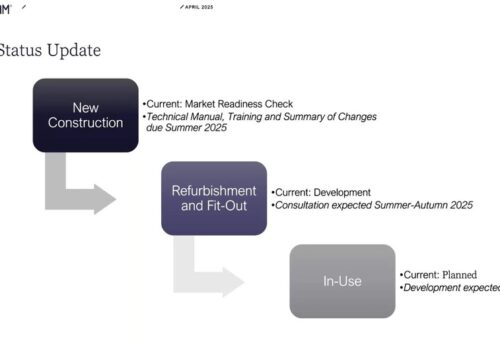
- November 1, 2024
UK Net Zero Carbon Buildings Standard, the first agreed methodology
This week our team had the opportunity to participate in the webinar focused on the pilot version of the UK Net Zero Carbon Buildings Standard, hosted by CIBSE. The session provided a comprehensive overview of the goals of the free-to-access technical standard and the innovative strategies it promotes to achieve net zero carbon in the built environment.
1. Understanding the standard’s framework
Until this point, there has been no single, agreed methodology for defining what net zero carbon means for buildings in the UK. Consequently, the area has been rife with spurious claims around the topic. The UK Net Zero Carbon Buildings Standard provides a set of consistent rules to create a level playing field around such claims, as it is designed to establish a clear framework for reducing carbon emissions in buildings. The pilot version allows participants to explore practical applications of the standard, testing the methodologies that will shape the final version. By clarifying definitions and metrics related to net zero carbon, the standard gives developers and building operators the tools they need to effectively evaluate their projects.
2. Encouraging whole-life carbon assessments
A key aspect highlighted during the webinar is the emphasis on whole life cycle carbon assessment. This approach considers not only the operational emissions of buildings, but also the embodied carbon throughout the entire life cycle. By promoting a holistic view of carbon impact, the standard encourages designers and builders to make more informed decisions about materials and construction methods, ultimately leading to significant reductions in overall carbon emissions.
3. Collaboration and knowledge sharing
The pilot version encourages collaboration among different stakeholders, from architects to engineers and policy makers. This collaborative approach is key to sharing best practices and addressing common challenges on the path to net zero. The knowledge gained by pilot participants will help refine the standard, ensuring that it meets the needs of the industry while remaining ambitious in its carbon reduction goals.
Conclusion
Our participation in the webinar on the pilot version of the UK Net Zero Carbon Buildings Standard deepened our understanding of the significant impact this initiative can have on the construction sector. As the pilot is implemented, it will play a crucial role in refining these approaches and fostering collaboration across sectors. We look forward to seeing how these efforts translate into tangible results that will ultimately help us create a more sustainable built environment for future generations.













